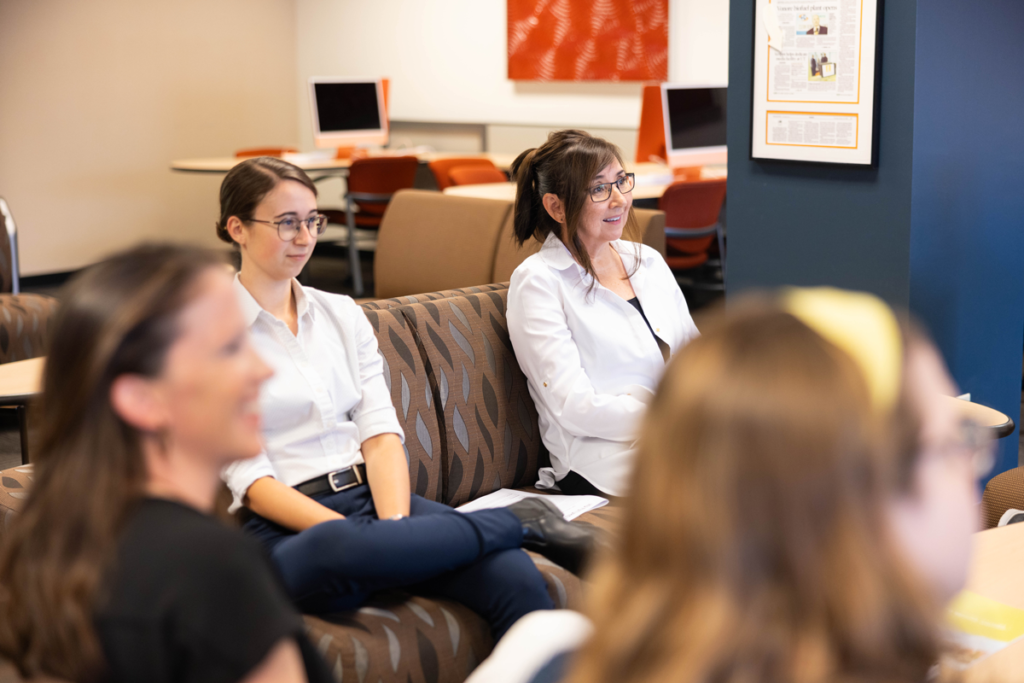
Supporting Information Integrity
As the information age continues to inundate every aspect of our lives, we find it imperative to study the positive and negative aspects of information in our society. Our work aims to scrutinize information seeking and sharing behaviors to find solutions that will improve how people consume and disseminate information so we can work towards a more just and sustainable future.
The Institute’s Research
Our Fellows’ Research
The Information Integrity Institute fellows were selected due to their research interests and areas of expertise. Below are just a few examples of their work that exemplifies why they were selected as our fellows.
Trust in Online Media and Information
Exploring how individuals assess the credibility of digital content, particularly in the context of misinformation, news consumption, and social media dynamics, this area examines factors influencing the effectiveness of interventions aimed at correcting misinformation, as seen in studies on topic novelty and news veracity. It also investigates the role of local news coverage in shaping public perception during crises like COVID-19 and the impact of online platforms, such as YouTube and BitChute, in mobilizing discussions around contentious topics like U.S. election fraud. By analyzing these dynamics, this research provides insights into the mechanisms that shape trust and credibility in digital information ecosystems.
Recent work
How topic novelty impacts the effectiveness of news veracity interventions. Communications of the ACM
Local news online and covid in the us: relationships among coverage, cases, deaths, and audience. In Proceedings of the International AAAI Conference on Web and Social Media
Characterizing Youtube and Bitchute content and mobilizers during us election fraud discussions on twitter. In Proceedings of the 14th ACM Web Science Conference 2022
Strategic Messaging in Advocacy
Strategic messaging in advocacy examines how various actors—governments, media, corporations, and political entities—craft and deploy messages to shape public discourse, influence policy, and drive social change. This research area explores the framing of issues like immigration in media and political narratives, as seen in studies on U.S. and Mexican media diplomacy and partisan framing in election coverage. Additionally, it extends to corporate social advocacy, analyzing how businesses engage in social issues to influence public perceptions and policy. Through these perspectives, strategic messaging in advocacy highlights the interplay between communication strategies and their broader societal and political impacts.
Recent work
Contesting the “Bad Hombres” narrative: U.S. and Mexican media diplomacy and presidential strategic narratives about immigrants. Diplomatica
Which political actors frame the immigration problem? Documenting the incidence of source type and party lines in immigration stories during US election coverage (2006-2014). Journalism Practice
Leading to social impact communication: understanding corporate social advocacy (CSA) from industry professional perspectives. Journal of Public Relations Research
Social Media Influencers and Persuasion
Social media influencers (aka content creators) play a crucial role in shaping public opinion, consumer behavior, and political discourse through persuasive communication strategies. Research in this area explores how influencers gain credibility, establish trust, and leverage network connectivity to amplify messages. Scholars examine both organic and orchestrated influence efforts, including the tactics used by political influencers, the dynamics of information integrity management, and the potential for persuasion through self-schema alignment. Studies also investigate the mechanisms of influence operations, differentiating between benign persuasion and malign manipulation, such as coordinated disinformation campaigns. This body of work highlights the growing significance of influencers in digital persuasion and their impact on public attitudes and decision-making.
Recent work
What makes an influence operation malign? (Working Paper). Carnegie Endowment for International Peace.
Reverse-engineering political protest: The Russian Internet Research Agency in the Heart of Texas. Information, Communication & Society
White Paper: The role of interpersonal influence in the management of information integrity within a population.
Using self-schema matching to recruit superdiffusers for a potential vaccine word-of-mouth promotion campaign